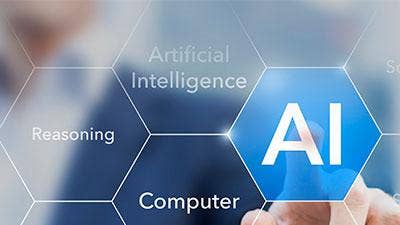Dell Technologies World 2018: The 5 Biggest Trends Driving Dell's Product And Solution Strategy
Dell Technologies executive Jeff Clarke discusses the five key trends that will dictate the future of the IT industry as well as the strategies Dell is developing to capitalize on the opportunities.

Trending Topics
The swirling cauldron of change washing over the IT industry can be boiled down to five key trends that will dictate the future of market, as well as the strategies Dell Technologies is developing to capitalize on the opportunities being created.
Dell Technologies Vice Chairman, Products and Operations Jeff Clarke laid out those five trends during a keynote address at the Dell Technologies World conference in Las Vegas this week.
Those trends, Clarke said, represent the overarching direction of the technology industry toward an artifical intelligence and software-defined future guided by customers' need to assess and act upon data in real time. The result will be a Dell Technologies that exerts control over nearly every aspect of the infrastructure required by the AI, machine-learning and software-defined market, Clarke said.
The trends Clarke outlined are speeding customers' digital transformation and prompting Dell Technologies to make rapid improvements to its infrastructure systems, as well as its services capabilities, he said.

Immersive And Collaborative Computing
The trend toward immersive and collaborative computing is driven by workforce transformation, Clarke said. "The definition of work and the workplace has fundamentally changed, and will continue to change," he said. At the core of that transformation is the demand for access to applications and information anywhere and at any time. "We are absolutely moving into an era where AR, VR and natural user interfaces are the norm," Clarke said, contributing to huge improvements in services in a variety of industries, including health care and manufacturing. AR and VR are playing significant roles in skills training, enabling 3-D modeling to make learning both simpler and more efficient.

Internet Of Things
The IoT boom is pushing more and more compute, storage, data protection and security to the edge of the network "because we have to make decisions faster and faster at the edge," Clarke said. Use cases like autonomous vehicles require real-time decision-making. "Couple that with billions and billions of devices and we have an unimaginable amount of data coming our way," he said. That flood of data is at the heart of Dell Technologies' vision, Clarke said, to "arm you with technologies, integrated infrastructure and services to effectively manage, analyze, store and protect your data."

Multi-Cloud
"Hybrid is prevailing," Clarke said, citing data that suggests that nearly 60 percent of cloud users today are using more than one cloud type. Customers, Clarke said, are moving back to private cloud, especially for mission-critical workloads, or workloads made up of proprietary data. Once customers understand the digital transformation broadly, they tend to move more quickly toward adopting a hybrid cloud strategy, Clarke said. Cloud-native applications developed as microservices in containers are also gaining prominence, helping to solidify the characteristics of a successful cloud strategy, including cloud-based management, flexibility of pricing and security.

Software-Defined
The future of IT centers around specialized software running on industry-standard hardware, Clarke said. That arrangement, he said, offers customers flexibility they haven't seen before. "It gives customers the flexibility, agility and speed they need to adapt to business conditions," he said. Software-defined networking on open hardware, Clarke said, offers particular benefits. NVMe and storage-class memory will further drive the software-defined market, he added.

Artificial Intelligence And Machine Learning
AI and machine learning offer a significant opportunity for businesses to make sense of all the data they produce and possess, Clarke said. Armed with that data, businesses can more effectively and accurately drive strategy toward desired outcomes, and do it quickly. "That's the key: Doing something with the data and doing it in the timeframe that you can make a decision from," he said. Clarke cited data that suggests more than 70 percent of all applications will have AI in them within three years. By next year, the fastest-growing software in the industry will be AI- and machine learning-based. Dell Technologies itself is a customer of AI and machine-learning technology, Clarke said, using AI to predict failure rates so the company can anticipate when to service products. As a result, it takes Dell Technologies 72 percent fewer steps to troubleshoot systems and its resolution times are down 91 percent, he said.